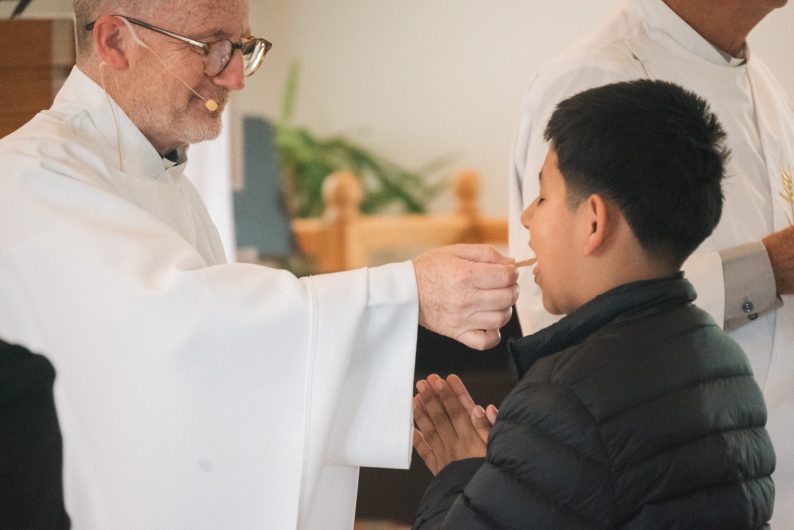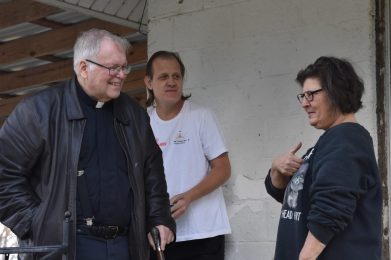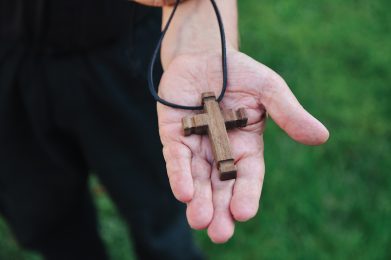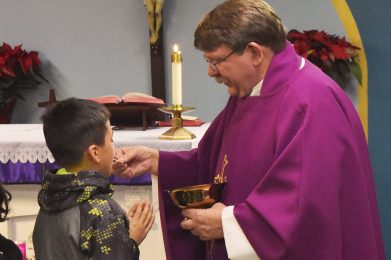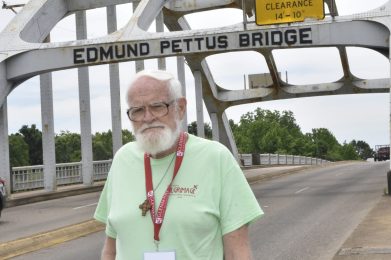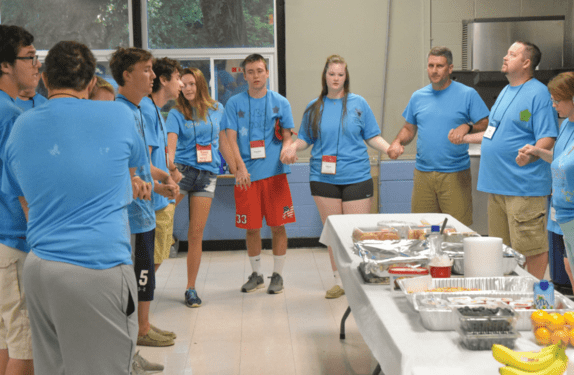I stumbled into the Catholic Church by God’s abundant grace when I was in my late 20s. Thirty-five years later, Catholic Christianity is still the center of my life. When I joined that particular parish community and the immense, widely diverse, universal Catholic community spread throughout the world, I felt I had found my people and my home.
It all started in a parish in inner-city Cleveland that I came to know through social ministry. St. Patrick was a hub of direct service to the neighborhood’s poor and vulnerable and a leader in social change advocacy. The parish brought together three elements that remain essential to my core vision of faith. They are at the heart of Glenmary’s charism: grounding in the Eucharist; developing vibrant, engaged parish communities; and orienting the parish’s focus toward the needs of the world outside the church walls.
Everything begins with the Eucharist, the “source and summit” of our faith. We social mission advocates love to quote the catechism: “The Eucharist commits us to the poor.” The Eucharist does indeed orient us to those most in need. But how is that, exactly?
Catholic faith points to the reality that God is intimately bound up with this nitty-gritty world and with common human experience. That stands against spirit vs. matter, heaven vs. earth, revelation vs. reason. That means God cares deeply about human suffering, that God suffers with us. The ultimate expression of this intimacy between God and creation is Christ’s passion and death; God not only became one of us, but he felt our pain and loved us to such an extent that he gave his life for us.
That is the Eucharist: Jesus’ gift of himself.
We who strive to follow Christ are to do like Jesus: We respond to pain and injustice by giving what we’ve got, even at cost to ourselves. Yet we can’t do much on our own steam. We often are weak, sinful, and afraid. Especially when we are called evil in the systems of society, in “the way we do things,” we need courage and perseverance. So we are radically dependent on God’s power working through us in order to reach out to those on the peripheries, to speak up for those who have no voice. The Eucharist strengthens and empowers us, communally and individually, to act on our deep longing to serve. As someone once told me, “We are nourished by the body of Christ to be the body of Christ for the body of Christ.”
Experiencing Jesus in the Eucharist opens our hearts and eyes to recognize him in those most in need. We can understand the parable about the sheep and the goats (Mt 2:31). It’s so much more than Jesus’ moral directive to engage in the works of mercy, though it is that. The deeper meaning is that by doing so, we will encounter the suffering Christ himself. When Mother Teresa spoke of meeting “Jesus in his most distressing disguise,” for her the poorest of the poor in Kolkata, she was not making a metaphor.
This same dynamic is present in Glenmary mission parishes and counties. The best part of my Glenmary ministry is visiting our missions, where I witness vibrant eucharistic communities reaching out to the poor and vulnerable.
For instance, in Early County, Georgia, recovering addicts from the local community are invited to Mass and the weekly parish potluck. In Union County, Tennessee, parishioners bring fresh produce out to needy communities through the mobile Fresh Wagon. In Bertie County, North Carolina, Glenmarians, lay coworkers, and parishioners are building relationships with migrant farmworkers in need of spiritual, emotional, and material support.
In these Glenmary missions and so many others since Glenmary’s founding, the Eucharist is substantiated—made present—in small towns and rural communities by many loving, even sacrificial, acts of service and justice.
Polly Duncan Collum is director of Glenmary’s Office of Justice, Peace and Integrity of Creation.

